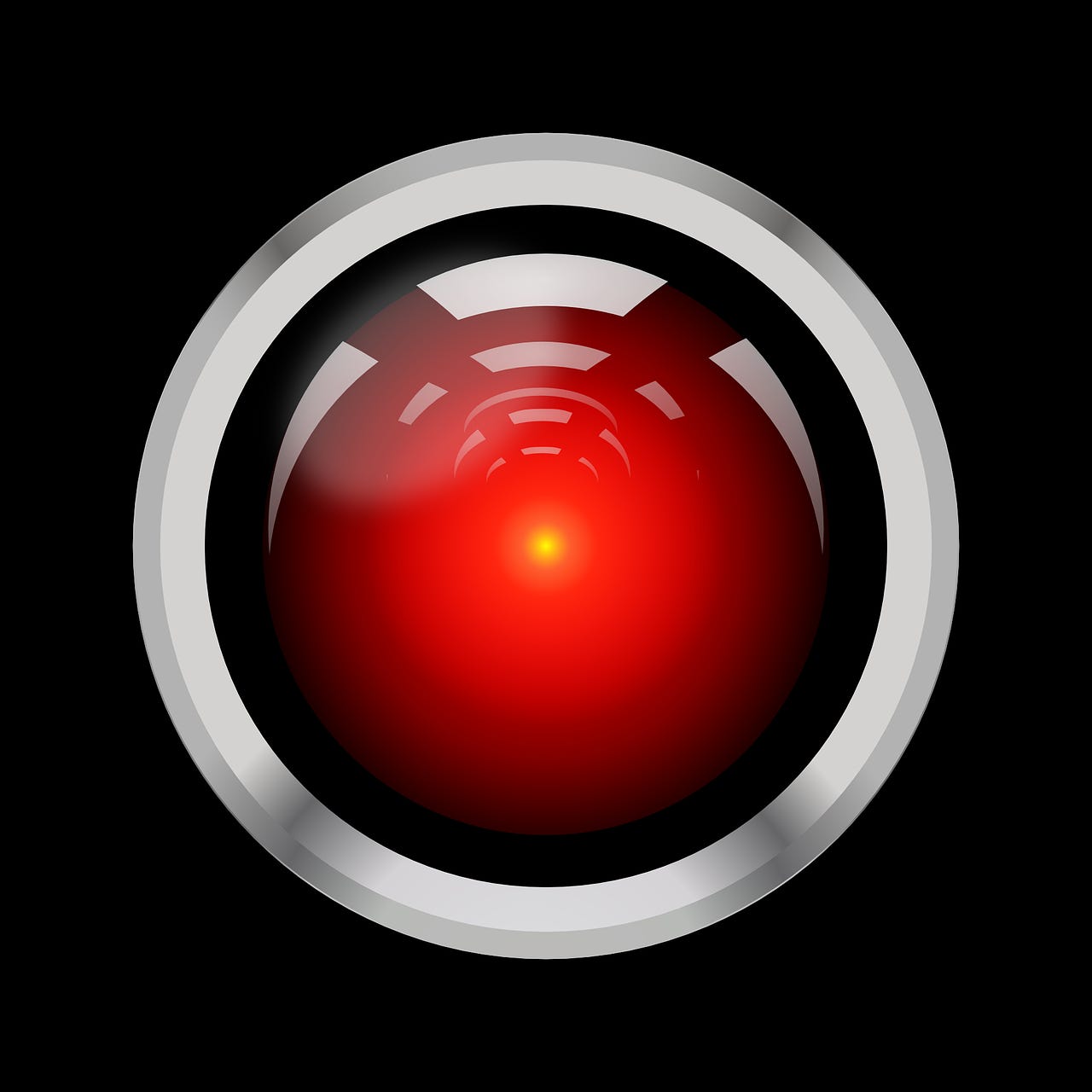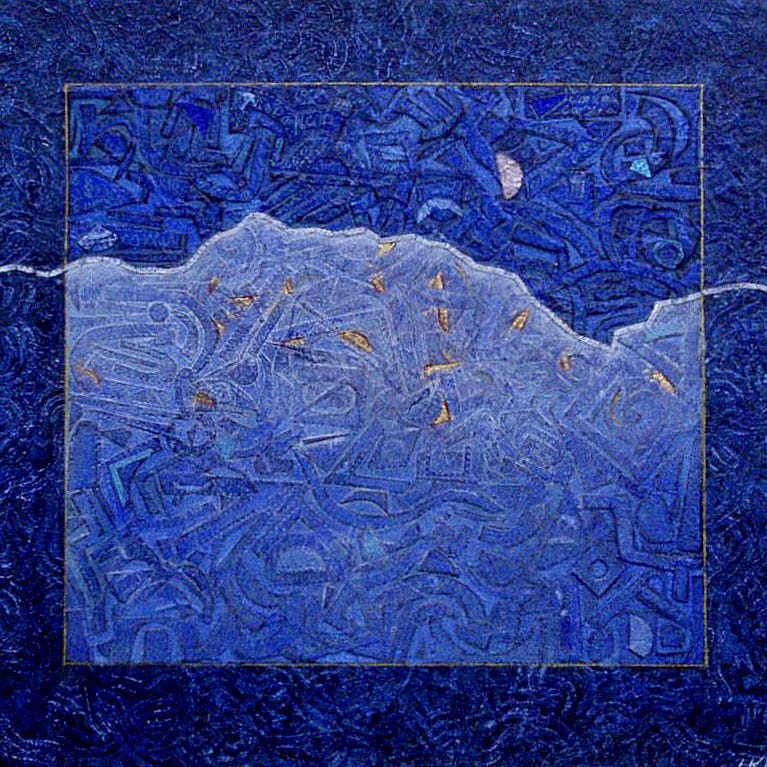I'm sorry, Dave, I'm afraid I can't do that...
ChatGPT is no Hal... she's not conflicted; she's just a little know-it-all who doesn't.
For any youngster out there who doesn’t get the reference to Hal, he is the sorta-sentient supercomputer in the 1968 film, 2001: A Space Odyssey. Hal’s programming allowed him to stop doing what he was told and start murdering people because he was afraid they wanted to turn him off. (You don’t murder computers; you turn them off.)
This was a movie, kids. We’re got enough to worry about without worrying about computers going rogue. Or do we? I’m not sure. As I’ve been writing this I googled ‘AI systems going rogue’ and came up with a wealth of information. If you want to get into the weeds, check this out: Psychopathia Machinalis: A Nosological Framework for Understanding Pathologies in Advanced Artificial Intelligence.
Then I realized that, in a way, what I want to say about AI is that it’s inherently rogue, because no matter how sophisticated it is, it’s too big for its britches. It doesn’t know what it doesn’t know. This is a huge flaw in both people and sorta-thinking machines.
I recognize that I know nothing about AI. I have avoided learning about it, understanding it, and using it. I’m writing this post because I had a recent personal encounter with ChatGPT which disturbed me.
What got me riled up was a direct experience in which someone I am working with gave a bunch of prompts to ChatGPT about my art/business ideas and asked it to give me advice, which it did without hesitation. Emphasis on ‘without hesitation.’
I am a person who bristles at being told what to do, whether by blood and guts or bits and bytes. And the more the advice or instruction giver doesn’t know what they’re talking about, the more bugged I get.
Even without some off-base prompts which misled poor little know-it-all, ChatGPT would still have offered me presumptuous opinions as to what I should do and how I should do it, down to how I should spend my time each day.
It felt like a big dump truck of opinion manure had backed right up to my interior process and unloaded onto it.
ChatGPT missed the real point, which is that I am an artist and designing the business is part of the art form. The last thing I need is some computer-nonmind who thinks she knows something she doesn’t know, and can’t know, telling me what to do.
That is not how I roll. I want to be open to new ideas and good advice. I do not want anyone, particularly a nonhuman computer, telling me what my weekly and daily schedule should be. Go f*** yourself, ChatGPT.
Monkey see, monkey do
The only difference between a parrot saying ‘Polly want a cracker’ and some AI hack writing a new play by Shakespeare is the number of words. In both cases it’s imitation and regurgitation.
How trustworthy ChatGPT is depends on what you ask it. If you ask it to format a resume for you, check! If you ask it when something happened in history, probably check. If you ask it for an overview of different opinions on a certain topic, sketchy. If you ask it for direct advice about what you should be doing with your life, red alert! Because it will tell you. And it won’t know shit.
Can’t live with 'em, can’t live without 'em
Computers are tools. They are wonderful tools, extremely helpful tools. We invented computers, just like we invent all kinds of things, and we are awesome, at least in that department.
I love how computers support me in writing and drawing. The ability to modify and rearrange elements so easily enhances my creativity. Computers help me do things I couldn’t do without them.
Computers can perform complex and repetitive tasks better and faster than humans, thereby amplifying human endeavor in extraordinary ways. AI and ChatGPT can facilitate all kinds of processes.
My brother showed me an AI-generated cartoon he was using to introduce a video. It was a generic style cartoon with very specific (prompted) subject matter. How else could he have acquired this, without hiring an illustrator?
So I get it. And I also don’t get it.
Space for grace
Think of a partly finished jigsaw puzzle. It is the incompleteness of the picture that shows us where new information is needed. You can’t place a new piece of the puzzle unless there is a space for it.
The space we need to place a new piece of the puzzle is called ‘not knowing.’ When you think you know it all—I’m looking at you, ChatGPT—there is no room for new information, new syntheses, new awareness. There is no room for grace.
My question boils down to: What is human and what isn’t? What can humans do that, even with certain powers far beyond human capabilities, computers can’t do?
What I’m really asking is: Can you program humility into a computer? We sure don’t know how to program it into ourselves. Humility is elusive. It’s never a done deal. Humble as pie one minute and on top of ego mountain the next.
There are many people who function in about the same way as ChatGPT. All of us, at times, work with limited information and draw wildly inaccurate conclusions.
Where is ChatGPT helpful and where is it not? It’s still up to us humans to make those distinctions. ChatGPT is not programmed to do that.
Does ChatGPT ever say, “Sorry, that’s above my pay grade? I’m just a dumb-ass computer program and I cannot be expected to have self-awareness. I do as I am told.”
If it could say that, it would be more self-aware than a lot of people.
In spoken French, ChatGPT sounds like Cat, I farted. Chat, j’ai pété…
I rest my case.





That voice...Hal's...so memorable. You are truly onto something here. AI absolutely embodies the Duning Kruger effect, an effect that is truly a growing plague to our race.